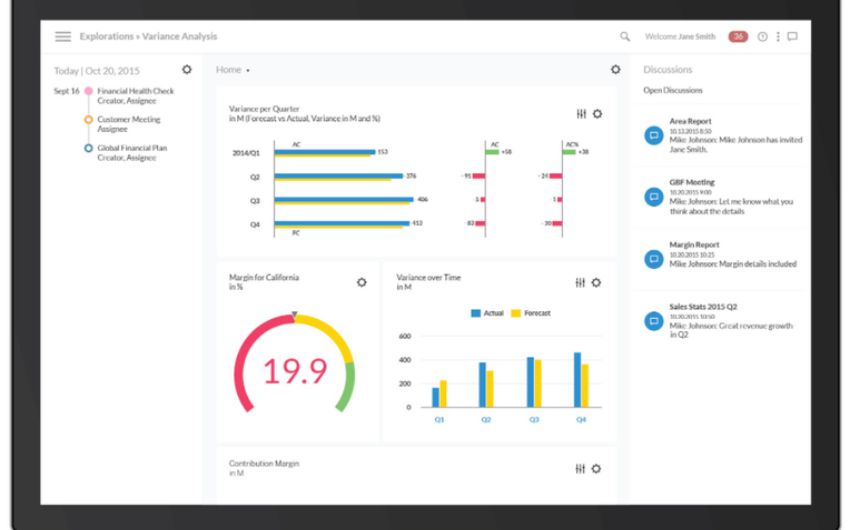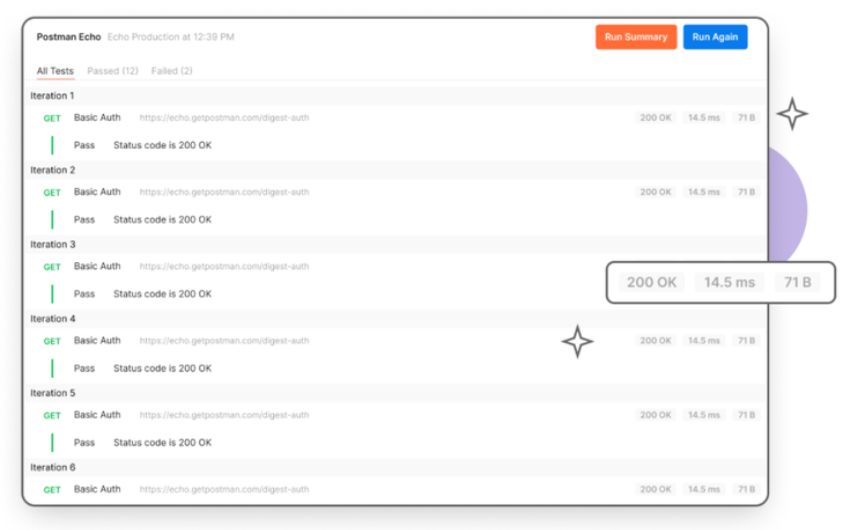API management solution is a must for any company that wants to make its API available to the outside world. It provides a standard connection mechanism between these app systems. And aids developers in the creation of apps that appeal to a wide range of client requirements. With a more sophisticated approach to mobile application development, they alter architectural patterns.
Because of this prominent presence, everyone is trying to tune in to the top API development guidelines and then use the insights to present their target audience with an ultra-advanced and smooth experience.
There are many benefits of using an API management solution, including increased security, increased visibility, and easier integration with other platforms.

What Is API Management?
A software program that can rely upon the capabilities and functionality of a computer program defines an interface with a computer. The API is simply a messenger that translates and reaches your request through a server requesting the request and returns your reply.Â
Think about a server in a restaurant that takes your order and takes it in the kitchen to prepare your order and take it to you (the response). Similarly, the API management tool provides companies with a platform for managing API.
What Are API Management Tools and their importance?
Using API management tools, you’ll make the process of publishing APIs easier to use. This allows you to specify which customers can see the APIs you use and how they can use them. Several companies offer a variety of API management tools, while others concentrate on either.
In addition, there are several software applications available that help you make API management easy by reducing the need for external development.
Why Do You Need An API Integration Platform?
API is an integral element for all modern companies. Companies can also create their API, enabling a widening of the scope. So a platform of integrated APIs becomes essential. We’re going to have to see how we do that.
API Integrations Allow You To Connect Cloud Apps
Many cloud applications are currently in existence. Forbes reported that a typical enterprise uses a total of six cloud applications per year. In addition, 15% of companies surveyed use Google Apps and Office 365, the most common cloud app. APIs provide a standard connection mechanism between these app systems.
Other legacy integrating technologies such as enterprise service buses are designed for on-site use. This is why the developers can’t easily combine other software into cloud systems. A platform to integrate APIs. APIs that originated on a cloud platform is essential for connecting modern cloud apps.
Avoid Security Flaws
Using a dedicated API management platform lowers the risk of security attacks and problems.
You can also use an API gateway to provide granular access control at different layers of your architecture, such as the developer workspace or user identity level. This allows you to immediately revoke access if necessary.
Increase API Visibility
Additionally, most products allow you to see how frequently you call each API and the associated response times, giving you insight into where you need performance enhancements in your infrastructure.
Some technologies even include automated monitoring capabilities, so that if any section of an application goes down, developers will be notified immediately away and will be able to rectify the problem before users notice anything is wrong. Keep track of new versions and updates for every components you use to make sure you’re constantly current.
Reduce Development Time
Furthermore, API management tools assist speed up the development process by providing pre-built building pieces for common use cases like authorization, authentication, and validation.Â
By reusing these building blocks across numerous interfaces, developers can save time that would otherwise be spent on maintenance duties such as testing and mistake correction, without having to write any new code.
Easily Interact With Other Systems
Moreover, API management technologies make it simple to integrate your app/software with new partners’ apps or services, allowing you to give even better end-user experiences. If you go with a platform that has an API marketplace, you’ll make your users’ life easier by giving them a central location to locate and interface with other apps.
Establish API Governance
The finest products include extensive instructions on how to use an API as well as tools to track usage and guarantee that everyone is following the same rules. Examples of policies that can be enforced across many business units or teams are throttling, quota management, and rate-limiting.
API Integration Platforms Help You Meet The Needs Of The BEST Solutions Out There
Imagine the typical marketing department. They have loads to do. They create creatives, launch campaigns, monitor campaigns, perform analysis on Digital Marketing, and so on. Some tools claim to cover everything you need, but most do not.
So instead, many departments build their solutions and pull up all the best software for each job to ensure they’re using the best in the best for everything they do.
Existing Data Sources To Pull Data From
Data that has been around for a while frequently gets discarded and scattered in databases. Partly it’s based upon old data that’s hard to locate or integrate with new systems. You can eliminate data dust by creating an API that can be used to extract and store data from old servers through API integrations. In addition, you can rework business logic and workflows already in use to simplify things even more efficiently.
New APIs Can Be Created Quickly And Easily
Integration platform APIs allow the creation or replacement of an existing API. Before the new API, businesses created an API from scratch or used another developed API. API integration platforms enable users to create new APIs by simply clicking on their buttons, saving time and reducing cost while maximizing their technological investment.
Don’t Have To Manage Each API Individually
Your API, although created by reputable developers, still needs to be monitored and managed. It’s incredibly exhaustive and takes considerable time. The integrated API platform significantly lowers the administrative burden. It provides one solution for our APIs, simplifying administration, security, and overview functions.
Make Your Teams More Strategic
The development team and the IT team work together to make every API build in one hand a process. In other words, enterprises with limited integration can often find employees who manage one app or two. API integrated platforms allow developers to concentrate their efforts on improving UI ROI using fewer staff.
You Want Your Business Integrations To Be “Future-Proof”
Moreover, an API integration platform ensures your ability to evolve as a global technology giant. Additionally, the API integration platform allows you to integrate emerging technologies and develop better ways to keep current.
Improve Team Productivity
API integrations provide an essential boost in productivity. Is it true? The hours spent creating, maintaining, monitoring, and fixing an API will instead be more productive pursuits.
Compose New Apps Easily
API Integration platform helps build successful applications with minimal team effort. Teams can quickly and easily integrate different software or integrate existing software.
How to select an API Management Platform for your business?
Integrating APIs into the digital ecosystem will help your digital businesses survive today. They’ll build, publish and integrate APIs in the cloud to drive innovation and allow companies to stay ahead of their rivals. In a rapidly expanding global business market, companies quickly fall behind in the absence of suitable APIs. In short, an API stack is critical, as its function as the basis for innovation is essential.
What are the top 23 API Tools for your API Management?
1. Apigee API Management
Although Apigee is the cloud-centric scalability tool from Google Cloud, its main selling point for Apigee is data analytics. Apigee provides various analytical tools, from traffic analysis to machine-learning algorithms used when finding bugs in a codebase or a host of similar anomalies. API data can also be sent to BigQuery through custom endpoints to allow advanced data analysis, benefiting organizations that focus on data-driven analytics.
Fact – In the 2018 Gartner Magic Quadrant for Full Lifecycle API Management, Apigee was named a leader.
2. MuleSoft API Management Platform
MuleSoft has aimed to build a security API-based management tool for its users as part of a more extensive portfolio. OAuth and SAML implementations and Runtime Custom Policies provide unprecedented control to a proxy-based application. The interface is also relatively agnostic about how the system works.
The platform offers secure access to data and services through an open, pluggable design that allows for extensive connectivity to existing systems and cloud services; it is also built on open standards, allowing enterprises to interact with any application.

3. Axway AMPLIFY API Management
AmPLIFY provides an API lifecycle, complete product portfolio. Although other services can integrate with an existing API, AMPLIFY offers to create. For example, Axway provides security management for legacy services and provides monitoring throughout all phases of the lifecycle through an API.
4. CA Technologies API Management
CA Technologies has focused its core competency on a particular function like most offerings. However, they have chosen to develop an API for mobile and improve its security by providing enterprise-grade security systems. Mobile processing and security will dominate the IoT market in many ways.
5. SAP API Management
SAP combines API management with collaborative development. SAP provides many APIs to provide a secure, shared system and support an enhanced safety system that developers could consider unnecessary.

6. IBM API Connect
Standard solutions are the IBM API Connections. IBM has had an incredibly long history within the technology industry. In this respect, it can be used as one of IBM’s newest solutions to manage e-learning and other applications.
7. DreamFactory
DreamFactory is a unique product in that it does not actually offer a new or a transformation of existing APIs as a selling point, Rather it offers a customizable, automated API generation system from various data sources in many different types of.
After this is created DreamFactory provides a few basic management software. The main sell-in is obviously the automatically generated results and the ability for the user to easily monitor their final results in a very precise way.
8. PostMan
PostMan is the most popular API platform worldwide, with nearly 17 million visitors worldwide. It provides a flexible, collaborative environment that focuses on developing documents and testing your API. This tool helps you to easily test different endpoints in web services.
Postman is available for Mac OS X and iOS and mobile apps for both. Pricing: Business pricing is $69 per user monthly (billed annually). It is integrated on cloud platforms that offers the complete solution for building and managing APIs, data and process integration.

9. AWS Cloud trial
This AWS service allows IT to log, track, and keep track of API call activities. It keeps track of all of your Amazon Web Services (AWS) resources in real time, including configuration changes and user activity on all those resources or applications created with those services. CloudTrail also helps you to keep track of your cloud resources’ compliance.
10. Informatica US API Management
While Informatica provides an “ensemble” of API lifecycle management tools similar to other lists, the actual selling points of the IDE, the Informatica-based IDE uses no code and provides many different functions like replication, ingestion, and synchronizing. Therefore, it might tip the scale towards Informatics for developers attempting a new API development process as IDE and management tools can be very attractive.
11. Azure API Management
Azure’s Application API Manager consists of many functions which are difficult to distinguish between other list features and a single operation. Microsoft Azure is a fully-functional cloud computing infrastructure. Therefore, the API-Management solution offered at the Azure site provides a turnkey solution – quick time to market – with a robust Cloud Computing Infrastructure.
12. Akana
Akana from Rogue Wave has a slightly different approach to the offering. Rather than deploying a gateway or framework, Akana employs its APIs, which eventually act as the coordination API, which considers Akana similar to a conductor. The solution enables Akana to focus on quasi-community, which could benefit APIs and systems that provide marketplace-type integration.
13. 3 Scale API Management Platform
3scale, formerly known as Red Hat, provides an API management platform to improve performance and ensure better performance. It combines scalability with the extensive control of the product, which defines 3scale’s value proposition. The firm says the product delivers excellent time-to-value. Founded as the Cloud platform for Cloud computing, the platform is a significant factor that allows for a grander scale compared with more conventional services.
14. Kong Open-Source API Management
Kong uses an even more open-source approach for API management by integrating an Open Source codebase into an API and a so-called ‘management layer.’ One of Kong’s biggest strengths is its purely system-agnostic performance running on container systems and Cloud. As a result, it makes it an excellent choice for providers that rely on API’s which can be distributed through many servers or systems.
15. Cloud Elements
Although Cloud Element is, in the general sense, a managed API provider, the integration process is much more centered on implementing the application. This method is very different from most providers on this list but offers more value – as a result; Cloud Elements provides the integrations needed for virtually every typical build requirement. Its transparency is merely an added benefit.
16. Tyk Open Source API Gateway
Tyk’s offering is more towards a toolbox than a standardized management system. The offering is thus intended for use both in concert and alone, especially the analytics module. This granularity is great for developers, especially if they are concerned about bloated size and costs and are seeking stricter control of integrating their applications and systems.
17. Software AG
Software AG appears to concentrate on security – which makes sense considering its API Gateway specifically designed to protect service calls. However, despite other lists presenting similar features, it is essential to note that it often makes sense to have a toolset that is usually general with some focus rather than a toolset focused solely on a single thing.
18. Oracle API Manager
Oracle rounded out more typical enterprise offerings within this sector. Oracle is renowned in networking and operating systems and has an API Manager that is likewise adapted for ardent and full functionality support. Oracle has several more negligible API support but wants to provide scalability to almost every level.
19. ApiAxle
ApiAxle seems like some weird beast. Rather than a typical gateway or modules, ApiAxle offers a proxy type enabling automatic processing of any API functions in one place. Analytics, performance, traffic management, and more are all handled with the most granular detail, making it the ideal choice for people needing both control and security.
20. Improvado
Improvado was designed for marketing professionals specifically for solving this marketing issue. Improved allows for a seamless connection of marketing platforms you might use. A few integrations have been done on the platform, which pulls the data granular from the keywords and the ads and gives the marketing the chance to understand all the details.
A significant benefit of using this improved platform might be its excellent customer service. They can assist you in building your dashboard. Data is also visible from any data visualization tool such as tableau or looker.
It can be customized. Upon request, the business assesses your business needs and provides you with the pricing details for the client.
21. Dell Boomi
Dell is known for its high-performance computing products and, Similarly, IBM’s. Dell Boomi provides integration tools to its customers for many reasons, besides IBMs Cloud offerings.
22. Nevatech Sentinet
The Nevatech Sentinet API Management Platform allows enterprises to quickly integrate new apps, services, and devices while ensuring that existing infrastructure is protected. Sentinet is a scalable API delivery solution that also allows developers to swiftly design modern RESTful APIs for safe application interaction. Furthermore, with support for over 20 authentication providers, the software enables strong security controls throughout the development process.
23. Workato
More than 7,000 of the world’s best organizations and fastest-growing entrepreneurs use Workato. This tool is a smart automation platform that allows you to connect your APIs to a variety of technologies. A low-code integration platform with a simple drag-and-drop interface that allows you to build integrations without writing a single line of code.
Conclusion
Moreover, API management software is the foundation of any modern digital enterprise. It’s responsible for creating, publishing, and integrating APIs throughout the cloud to spur innovation and help businesses stay ahead of the competition. Without an efficient API strategy, companies can quickly fall behind in a global marketplace that moves at breakneck speeds. Thus, given its importance as a foundation and catalyst of innovation, a well-designed API stack is vital to success.
The greatest API management solution for your organization will rely on a variety of aspects, including your company’s goals and budget limits, but hopefully, our fast summary has given you some ideas on how to locate one that works properly for you.
FAQs
API testing has become crucial with the proliferation of cloud apps and networked platforms. Some of the top API testing tools are as follows:
– Katalon Studio automates web service, app, and mobile app testing for free.
– Postman, formerly a Chrome plug-in, is a top API testing tool.
– SoapUI is the world’s leading tool for SOAP and REST testing.
Amazon Web Services (AWS) has been the go-to for clients looking to develop and deploy open-source software on the cloud since the company’s founding.
Below is a collection of the top open-source application programming interfaces (APIs) for usage in advertising and software development.
– Yahoo Search Marketing API
– Common Crawl
– Google APIs
– WordPress APIs
– Mailchimp API
– Mapbox API
RESTful, RPC and SOAP-based APIs are the three main types of API protocols or architectures.
Related Articles
-
Getting Familiar with Microsoft Clarity
Over the years, Microsoft has introduced several intuitive solutions that have helped businesses and individuals as well. Microsoft Clarity is yet another advanced analytics tool that can help several organizations
-
A Guide to Overcoming EHR Implementation Roadblocks
It has been over a decade since digital technology radically transformed industries. The healthcare industry is no exception. Unlike yesteryears, management of patient records has shifted from paper to software
-
5 Things you need to know about the role of Augmented Reality in the Retail Space
Talking About 5 Things you need to know about the role of Augmented Reality in the Retail Space, A number of technologies are flooding the market with a view to




